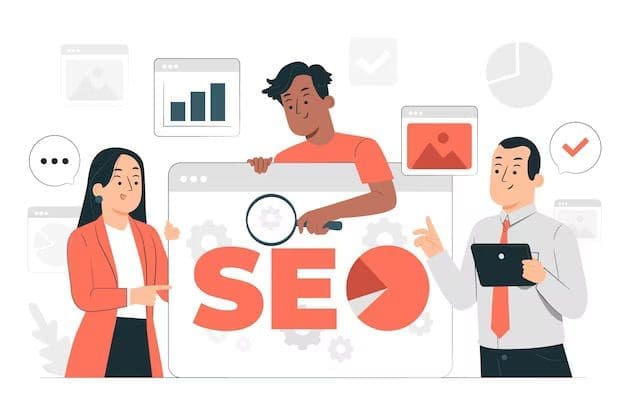Hiring an Albuquerque SEO company is a strategic move for business owners looking to enhance their online presence and increase website traffic.
However, regularly assessing the performance of your chosen agency is crucial to ensuring your investment is yielding the desired results and that your online goals are being achieved.
At WSI Web Enhancers, we’ve helped numerous businesses in Albuquerque achieve their online marketing goals. Our experienced SEO company is dedicated to helping you make informed decisions that maximize the benefits of your marketing investment.
In this blog post, we’ll share key indicators to help you evaluate the effectiveness of your chosen SEO agency.
Understanding SEO
Search engine optimization (SEO) is a long-term digital marketing strategy that helps improve a website’s visibility in Google and other major search engines.
SEO services aim to increase the quantity and quality of traffic to your website through organic search engine results. This is achieved through various strategies, including on-page optimization, off-page SEO, and link building.
Website optimization can’t be done overnight – it’s an ongoing process that must be maintained over time to see results. However, it can be very beneficial for your website, as it can help increase your online visibility, organic search traffic, and conversions.
Key Indicators Your SEO Company Is Doing a Good Job
Now that you understand what search engine marketing entails, let’s explore some key indicators you can use to assess your agency’s performance.
Increased Organic Traffic
One of the most apparent signs of an effective SEO strategy is a noticeable increase in organic traffic to your website. An experienced SEO firm will optimize your site to rank higher in search engine results pages (SERPs), leading to more clicks and visits from potential customers.
Using tools like Google Analytics helps you monitor your website on a regular basis for an upward trend in traffic.
Improved Search Rankings
Your agency should regularly provide detailed reports on your website’s search engine rankings. Dedicated SEO experts will work diligently to improve your rankings for target keywords, helping your business gain more visibility.
If your site is consistently moving up in the rankings, it’s a positive sign that your agency is doing its job.
High-quality Backlinks
A strong backlink profile is crucial for success. SEO experts should build high-quality, relevant backlinks into your website from authoritative sources. These backlinks improve your search rankings and enhance your website’s overall authority and credibility.
Targeted Keywords
Your agency should track the performance of the keywords they’re targeting. This includes monitoring the rankings of these keywords and the amount of organic traffic they generate. SEO consultants will adjust their strategy based on the performance of these keywords to ensure maximum impact.
Valuable Content
Content marketing is a fundamental aspect of an effective SEO campaign. The agency you hired should produce high-quality, relevant content that aligns with your business goals and resonates with your target audience.
Regularly updated blogs, informative articles, and engaging website copy indicate a job well done.
Better Conversion Rate
Implementing effective SEO solutions isn’t just about driving traffic; it’s also about converting that traffic into customers or leads. A good agency will work on optimizing your website for conversions, which may include improving user experience, implementing calls to action, and optimizing landing pages.
Transparent Communication
Effective communication is vital to any successful business relationship.
Your agency should provide regular updates on their progress, answer your questions promptly, and be transparent about their strategies and tactics. They should also be willing to adapt their approach as needed.
Competitor Analysis
The SEO marketing services you hired shouldn’t solely focus on your website – they should also keep an eye on your competitors. This means analyzing your competitors’ strategies and adapting your optimization efforts to stay ahead.
Higher ROI
Ultimately, the success of your campaign should be reflected in your business’s bottom line. Assess whether the increased traffic and visibility translate into measurable results, such as higher sales, more leads, or increased brand awareness.
Transform Your Online Presence With Our Trusted Albuquerque SEO Company
At WSI Web Enhancers, we’re committed to tailoring our strategies to align seamlessly with your business objectives. Through a deep understanding of your ideal customer profiles and the ever-evolving dynamics of the local market, we craft exceptionally targeted content that attracts and converts high-quality leads.
Our commitment to transparency, data-driven insights, and staying on top of the latest industry trends ensures that you consistently outperform your competition.
Contact our Albuquerque SEO company for a free consultation today!






